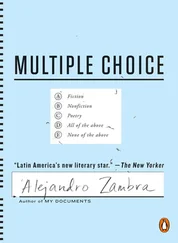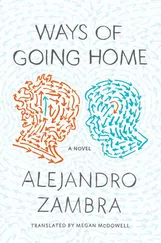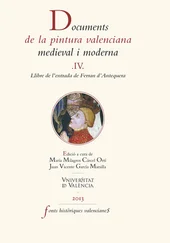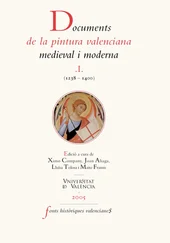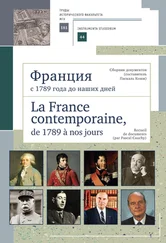At eleven years old, more or less, I became, almost simultaneously, a voracious reader and a promising smoker. Then, in my first years at university, a more lasting bond formed between reading and tobacco. In those days Kurt was reading Heinrich Böll, and since all I ever did back then was imitate Kurt and try to be friends with him, I got my hands on The Clown , a very beautiful and bitter novel in which the characters smoke all the time — on every page or at least every page and a half. And every time they lit their cigarettes, I would light mine, as if that were my way of taking part in the novel. Maybe that’s what the literary theorists mean when they talk about the active reader: a reader who suffers when the characters suffer, who is happy when they are happy, who smokes when they smoke.
I went on reading Böll’s novels, and every time someone smoked in them, I would smoke too. I think that in Billiards at Half Past Nine and And Never Said a Word and House Without Guardians , the books I read next, the characters also smoked a lot, although I don’t really remember. In any case, by the time I finished those novels I had become a compulsive smoker. Or, to put it more precisely, I had become a professional smoker.
I’m not stupid enough to claim that it was all Heinrich Böll’s fault. No: it was thanks to him. How frivolous all this must sound. Thanks to those novels, I understood my country and my own history better. Those novels changed my life. But will I be able to read them again without smoking?
In a venerable passage from his Irish Journal , Böll himself says it was impossible for him to watch a movie in the cinema if he couldn’t smoke. My dear dead friend, you have no idea how many times, because of my desire to smoke, I have fled the theater in the middle of the movie.
•
Fiftieth / thirty-sixth.
It took two cigarettes to get from my house to the pool hall. This was in 1990, when I was fourteen years old. Two cigarettes: the first when I left the house, followed by a pause, and then the second, which I would finish just before entering the pool hall on Primera Transversal, where I’d light another one that was not the third but rather the first of a long night of pool cues and lucky shots. At any given moment there was a lit cigarette balanced between someone’s lips.
Tennis, too. It took me two and a half cigarettes to get to my cousin Rodrigo’s house, and then one more for us to reach an empty lot where some generous or forgetful person had set up a net. Every once in a while we stopped to smoke, and I remember that on several occasions we smoked while we played. He always beat me at tennis, but I was the better smoker.
•
Another relapse, last night, in Buenos Aires, all because of this new friendliness I’ve contracted.
My newfound friendliness makes me get too close to people too soon; I’m like those guys who go in for a hug when you least expect it. I’m imitating people I’ve always looked down on. That’s what I’m turning into: I now allay my anxiety by expressing premature emotions. But I don’t pounce on just anyone — I approach huggable people, people who, according to my first impressions, seem to deserve that closeness. My gesture is not exactly a hug, either, it’s more like a slight movement accompanied by undignified, nervous laughter.
I was with Maize, Matron, Libreville, Merlin, Canella, Valeria, and several other recent acquaintances and, before long, I was already thinking of them as close friends. On top of the beer — which I can drink again, after unfairly blaming it for the headaches for years — there was an important factor contributing to my euphoria: the happiness of the tourist, the blessed state of passing through. From that comfortable vantage point, I followed the terrible discussions about the local literary goings-on. They confronted one another, really laying into each other, invoking diffuse but still legitimate principles, and, miraculously, a sort of harmony or camaraderie prevailed. I demonstrated my gratitude through obedience: I wrote down the titles of all the books they recommended to me on a napkin — which, in the end, in a regrettable lapse of attention, I used to wipe my mouth — I ate some atrociously greasy food, and I took each sip of beer with an urgency that matched their own.
Suddenly an interest in my process arose, and I found myself explaining, in my awkward Chilean dialect, that I had stopped smoking, not by choice but by medical prescription, because of my malady. Oddly, no one at the table started talking about how they suffered or had suffered from headaches, which is the natural course that conversation takes. I noticed that they were focusing a lot on my way of speaking, and then the critic from Rosario or Córdoba — a sullen but agreeable guy who up until then had participated only intermittently in the conversation (sometimes he seemed interested, but most of the time he observed us with a sneer of disdain) — looked at me with his crazy, shining eyes and said, “Do me the favor of smoking again, Chileno.” Maize supported him, Matron seconded it, Libreville too, and soon they were all shouting: “Come on, Chileno, have another smoke. Do it for Chile.”
I obeyed. In a split second I had grabbed, lit, and taken a drag of a Marlboro Red. It was horrible, but by the second inhale I already liked it better. My concession brought us back to normal, and the Rosarian critic — who was maybe from Córdoba or Salta — started in on a story about his experiences with group sex. At a certain point I thought his goal was to take us all to bed, but really he just wanted to talk about the details of his private life for a while. Very soon, as if sticking to a capricious script, he went back to his natural state of intermittent participation in the conversation.
The night’s final cigarette was to accompany a couple of whiskies that Pedrito Maize treated me to in the hotel bar. I woke up at noon, with barely enough time to pack my suitcase and set out for Ezeiza. The dreaded day after seemed doubly bad; it was as though I could distinguish the layers, the different levels of hangover. The fallout from the alcohol was slight, but the aftereffect of the eight or nine cigarettes stuck around. Maybe the medicine prolongs, as a kind of punishment, that sense of disgust. From now on, I’ll find a way to keep my new friendliness in check.
•
Walking down Agustinas this morning, I saw a man approximately my age and height and also my coloring who was smoking as he walked. I watched him take a drag of his cigarette, and for an instant the movement struck me as very odd. It was a long drag, as though in slow motion. Suddenly, I wanted to absorb or devour his face. I felt astonishment, then revulsion. The man was disgusting to me. Later on — soon, right away, but later — I understood that he revolted me because we were so similar.
We resembled each other completely, except for four obvious differences: the color of his pants (I would never wear that shade of “waffle cone”), the hook-shaped earring that hung from his left ear, his clean-shaven face (versus my growing stubble), and, of course, that cigarette in his mouth, which in the past I’d always had too.
•
I read on the cover of a book of Fogwill’s:
I sailed a lot, I planted many trees, and I had four children. As I finish editing the works that will make up this volume, I await the birth of the fifth. To think in the sun, to sail, and to produce and serve children are the activities that feel best to me: I’m confident I will go on repeating them.
Then I remember that text of Nicanor Parra’s, “Mission Accomplished”:
Trees planted
17
Children
6
Works published
7
Total
Читать дальше

